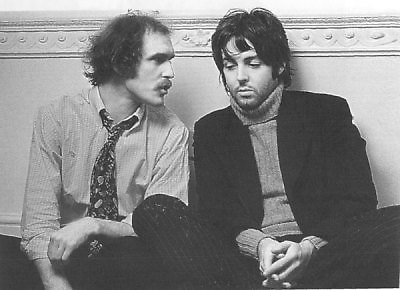Thinking about this issue of schooling in India and privilege, I was reminded about some conversations I've had with some people that have stayed with me through the years.
The first one happened several year ago. I was having lunch with Jeroo Mulla, in the staff room of the Sophia Polytechnic. I'd studied there a few years before, but it was the first time - though not the last - that I was having lunch in the staff room. For some reason, I was telling Jeroo about Rishi Valley and the kind of school it was. No exams, no emphasis on competition and so on. She questioned me closely about methods and number of students.
"Where are the students from?"
"Well, from all over the country. Hyderabad, Nellore, Bangalore, Bombay..."
"Where is the school, exactly?
"Half an hour away from a small town called Madanapalle."
"Do children from Madana - what did you call it? Do children from there study in Rishi Valley?"
I knew where this was headed. "Some."
"What about fees?"
I told her. At least, I told her what it had been back when I was there.
"See? This is the problem. It's all very well for such schools to exist, but it's all for the privileged people. What about the children in the villages you were talking about? When will they have access to a Rishi Valley kind of school?"
At the time, I had to say I didn't know. Now I can offer
something else in reply. But it is problematic in a different way that I will come to shortly.
*
The second conversation happened in a half-serious way. What happened was this. I was dissatisfied with the
Waldorf Steiner school that my son was going to. So I went to the only other school in Hyderabad that I could imagine putting him in - Vidyaranya. It is a private school run by a trust set up by
Shanta Rameshwar Rao. Shantamma, as she is universally known, is not only an educationist, but also a writer of children's books. This was a day or two after the admission formalities had been completed and I was in her office to ask her something. A parent came in to plead and beg that her child be taken into Vidyaranya.
After explaining that 1. there was no place in the school; 2. the child lived too far away and that the parent should put the child in a school close by; 3. that there was nothing different about the school so why was she so eager to have her child only in this school, (all of which made no difference to the lady in front of her,) Shantamma finally snapped.
"If you want your child to be in a good school, then
start one. What do you think I did?"
*
Finally, in December this year, I found out that the Krishanmurti Foundation had been trying to get Ranjit Hoskote to give a talk in the KFI schools. When he was here in January, I asked Ranjit about this. He told me that they had been trying to get him to talk to the students about Krishnamurti.
Whatever initial shock I experienced wore off pretty soon. I realised that during my visit there in October, that the school in carefully avoiding indoctrination of any kind, was in complete self-denial about why they were a
Krishnamurti Foundation school in the first place.
*
All of these conversations are a kind of context for the whole issue of privilege, schooling and education.
Make no mistake: any child for whom school-going is a given is privileged. Every one of us, no matter what our upbringing, background, economic well-being or social standing, is privileged to have completed our education uninterrupted by early (and illegal) marriage, economic necessity, work, natural disaster or war.
And yet we're dissatisfied with schooling as it is today. With good reason.
Potential students vastly outnumber schools.
Not every school is good, so parents are willing to have their children travel up to an hour each way so that they can be in 'good' schools.
'Good' is often - though not always - measured by the exam-preparedness of students. Sometimes, especially in cities like Bombay and Delhi, the measure of a good school is its age; it's record in having produced influential and/or wealthy people; and whether it qualifies as a Public School.
Plenty of schools have teachers who could do with some more learning themselves. But teachers - especially for primary schools - are hard to get. So schools make do with what they have.
So parents take what they can get, and so the admission circus that is played out every year in Delhi and Bombay.
But this is to assume that schooling is the same thing as an education. It is emphatically not. Schooling is, almost by definition, a way of making same; of ensuring that children are 'schooled', trained, to behave in a certain way, ingest a certain amount of information and be ready to recall it at need. And finally, it is training to fit into a certain social milieu that requires a certain kind learned social behaviour. Schools teach children to take their place in an adult world that is similarly constructed: where a person goes to 'work' for a certain number of hours a daya dn then leaves it behind to come back to 'their' life. That we rarely question this pattern of living is a measure of the success of our schooling.
*Not all of this is meant to be read pejoratively: there is value in training one's mind; and much of what is necessary is learnt behaviour.
Then what is
education?
Every alternate school worth its salt attempts to answer this question. Depending on the emphasis of the answer, each educationist's strategy for teaching becomes different. To my mind, education begins before schooling and never really ends. The job of a school that is interested in more than curriculum and the things that qualify as extra and co, is to open a child's mind to more than the acquisition of information, and keep it open: to questioning, to experiences and to ( this is going to sound extraordinarily corny) life.
Does the average school offer more than a timetable for unit tests and examinations and days upon days of divided time? Of course not.
What is the alternative? Either a parent ought to concede that there's little to choose between schools; or move to a place where there's a school that chimes with one's own philosophy of education; or be prepared to redress the imbalance by starting a school that will teach children the way one thinks they ought to be taught
(and then be prepared for the deluge of other parents wanting admission; of having to decide between taking everyone in who comes and having 40 students per section and a minimum of six sections per class, or having an admission process that is necessarily exclusive; of finding teachers who agree with one's philosophy of education enough to join up and then stick around year after year; of finding a place, buildings, facilities, transport; and at the end of all administrative static, to keep the flame of the idea alive so that it lights up the lives of children as one hoped it would.)
Falstaff said, in
his comment to the previous post, that"the challenge... is figuring out what to do with privilege rather than denying it." Will come to that in the next post.













